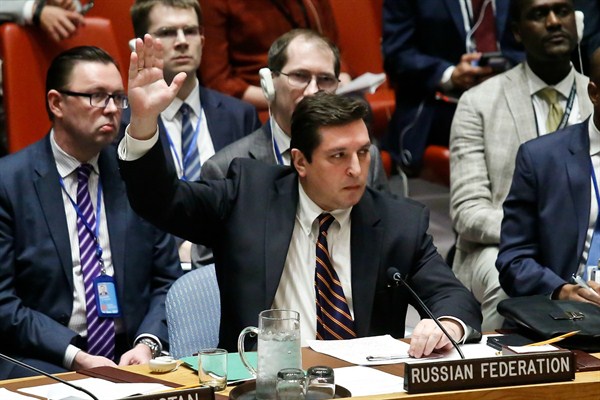It is Cold War time at the United Nations again. Last week, Russia caused diplomatic uproar by vetoing not one, but two Security Council resolutions extending a U.N. investigation into the use of chemical weapons in Syria. Moscow is angry with the investigators for accusing the Syrian regime of using sarin gas and chlorine bombs.
Russia has now used its veto 11 times to block resolutions over the Syrian war since 2011, four of them this year. Every veto sparks a ritualistic bout of outrage in the Security Council. All sides seemed especially tetchy last week. Nikki Haley, the U.S. ambassador to the U.N., claimed that her Russian counterpart was refusing to take her phone calls. Russian Foreign Minister Sergey Lavrov accused Haley of “fake diplomacy.”
Journalists and diplomats alike characterized these exchanges as having a Cold War flavor. Moscow’s hard line is raising concerns about the future of Security Council diplomacy. Will Russia increasingly use its blocking power to paralyze the U.N.?

